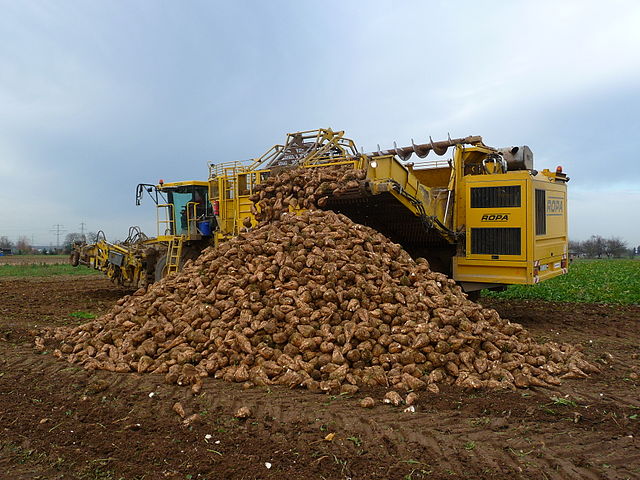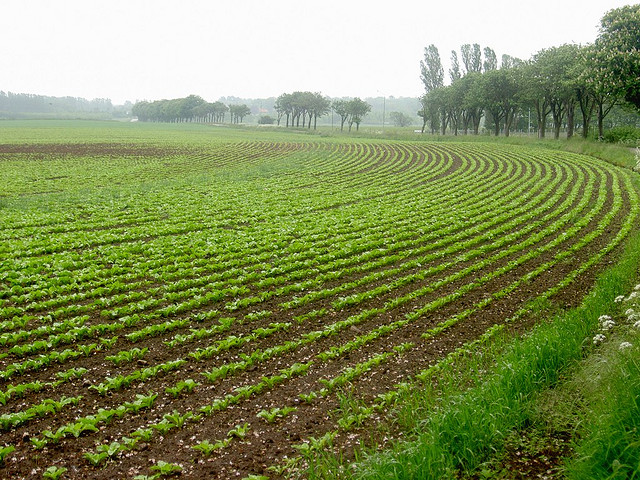After much lobbying the Council and Parliament finally agreed that sugar quotas (including quotas on isoglucose) would be extended until the end of the 2016/17 season but would be abolished with effect from October 2017. In January this year, the EU’s Joint Research Centre (JRC) Institute for Prospective Technological Studies published its assessment of what might happen to the EU sugar market as a result of the abolition of sugar quotas. It is worth examining this report in some detail both for its substantive conclusions but also for some insight into the factors likely to affect the EU sugar market balance in the years after 2017.… Read the rest
More supply management demanded in COMAGRI single CMO report
The French EPP member Michel Dantin is the COMAGRI rapporteur for the Commission’s draft revisions of the single CMO regulation. His draft report is detailed and comprehensive – he alone has tabled 434 amendments to the Commission’s draft regulation. Many of these amendments implement the two guiding principles which animate his report, namely, distrust in the ability of markets to always work satisfactorily where agriculture is concerned, and the desire to emphasise the legislative role of the Parliament vis a vis both the Council and the Commission.
Mr Dantin is a believer in the theory of ‘agricultural exceptionalism’ and that farmers require state assistance to operate in dangerous markets.… Read the rest
The political economy of eliminating sugar quotas in 2015
The Commission’s legislative proposals for the CAP after 2013 published in October 2011 include no proposal to continue the sugar production quota regime. An intense struggle is underway between EU sugar producers who want an extension to the quota regime and sugar users who support the Commission’s proposal. We review the political debate in this post.
Opponents of sugar quota elimination
The European Committee of Sugar Manufacturers (CEFS) (here and updated here) accepts that quotas will end in the long term, but supports the continuation of the quota system until 2020 rather than 2015. It argues that the EU sugar industry has actively engaged and invested to further improve its competitiveness and efficiency since the 2006 reform of the sugar CMO.… Read the rest
Leaked Commission figures sound death knell for biodiesel
Euractiv has a post purporting to contain the default carbon emission values to be assigned to biofuels made from feedstocks such as palm oil, soybean or sugar beet when the European Commission releases its proposed legislation on biofuels and indirect land use change later this spring, based on a leaked draft of the proposal.
Any application of the leaked values would severely hamper the ability of biodiesel manufacturers to enter into the EU’s new biofuels certification plan, announced last August.
Assuming that the EU does not relax its overall target for renewable energy in transport fuel (10% by 2020), if biodiesel fails to make the grade this would raise the demand for bioethanol made either from domestically-produced sugar beet or imported either from Brazil or Southern Africa.… Read the rest
Agricultural Council discusses the single CMO
Danish Agricultural Minister Mette Gjerskov presided over her first Agricultural Council of the Danish Presidency with some dash and vigour last Monday 23 January. Her energy contrasted with the comments of some of her fellow Ministers in their first formal debate on the Commission’s single CMO legislative proposal, with a number of ministers seeking to roll back some previous reforms.
The Presidency structured the debate around two themes: the effectiveness of exceptional measures in case of market disturbances and crisis; and the proposed measures aiming at a more competitive and well-functioning food supply chain. The debate, which lasted just over two hours, can be followed here on video.… Read the rest
Commission projects unchanged sugar market following quota elimination
Further details on the Commission’s expectations for the EU sugar market following the end of sugar quotas in 2015 are contained in its market outlook to 2020 publication published last month.
This medium-term outlook for the EU sugar market is based on a status quo assumption for agricultural and trade policy. The Commission notes that its CAP towards 2020 legislative proposal confirms the existing provisions on expiry of the regime after the marketing year 2014/15. Thus it argues that the policy assumption on the expiry of sugar quotas is in conformity with existing legislation.
In my own review of the legislative proposals I argued that the Commission’s decision not to propose an extension to the sugar quota regime after 2014-15 is a part of the 2013 CAP reform, on the grounds that this was the first time that the Commission had made its intentions clear.… Read the rest
Fraud and the CAP
The budget monitoring website FollowTheMoney.eu is serialising a three part survey of the long history of fraud in the Common Agricultural Policy. Things are better than they once were but to invert the old Yorkshire saying, where there’s brass, there’s muck.… Read the rest
Keeping an eye on the sugar market
Sugar did not experience the massive price spike in 2007-08 of other commodities, but has been making up for this with a tremendous increase in prices in 2009, driven by poor harvests in Brazil (the world’s largest producer) and strong import demand in India (the world’s largest importer). Raw sugar prices have risen from around 10 USc/lb in May 2008 to over 27 USc/lb currently, and market analysts expect further increases in the coming months.
The increase in world prices means that world prices are now above the (much reduced after the recent sugar reform) EU reference price. Recent price trends are shown in the following figure, reproduced from the SugarTraders website

Despite the very tight global market, EU sugar beet supplies have moved in the opposite direction.… Read the rest
The 2006 EU sugar reform in review
Two interesting papers on EU sugar policy recently crossed my desk. One is an account of the ‘new’ sugar regime after the 2006 reform by three legal academics from the University of Barcelona, in which they also examine whether the reformed regime is likely to be compatible with any agreement from the Doha Round negotiations. The other is the one of the series of regular reports by the US Foreign Agricultural Service on EU agricultural markets, this time on the likely impact of the EU sugar reform on ACP (African, Caribbean and Pacific) and LDC (least developed country) sugar exporters.… Read the rest
Council agrees reform of the sugar reform
The Council agreed yesterday the Commission’s proposals to improve the attractiveness of the sugar industry restructuring scheme in order to meet the Commission’s objective of a reduction in 6 million tonnes of sugar quota by the end of the four year transition period 2006-2010 for the current EU sugar reform. As noted in a previous post, this reform target had been threatened by a much lower renunciation of quota in Year 2 of the reform than the Commission had assumed.
The key elements of the ‘reform of the reform’ are
- The percentage of the restructuring aid to processors which is to be given to growers and processors is fixed at 10 percent, with an additional top-up payment to growers of €237.50 per tonne of quota renounced, payable retrospectively.


